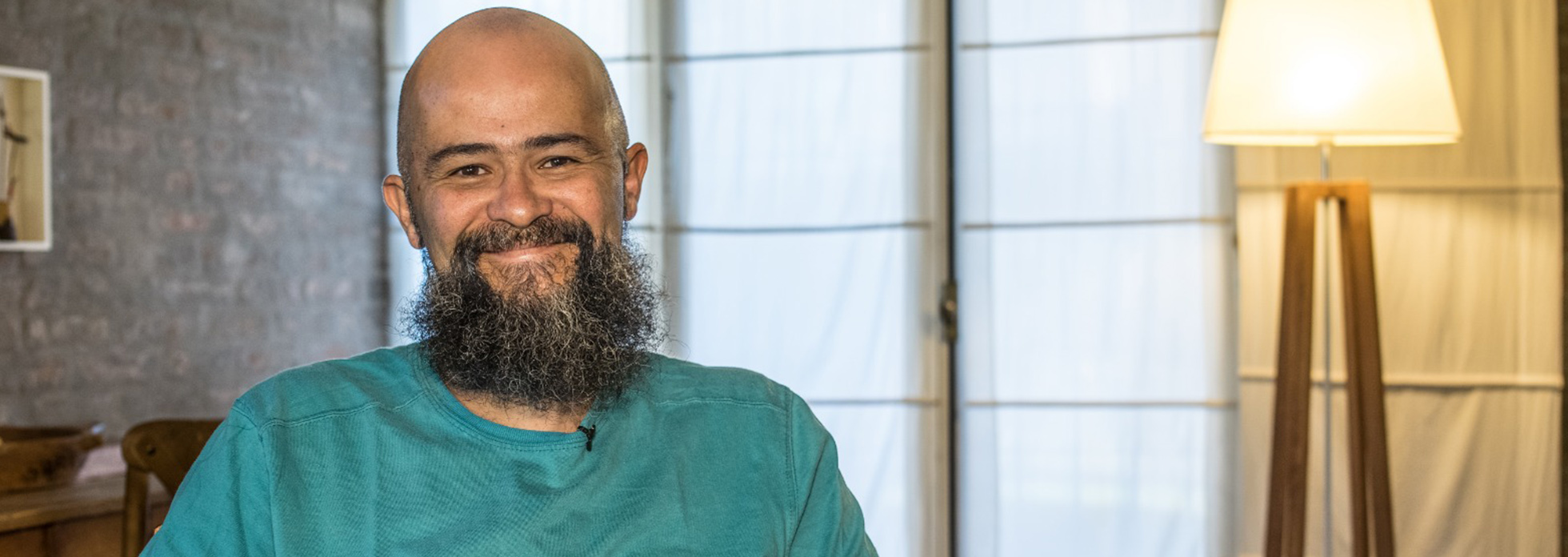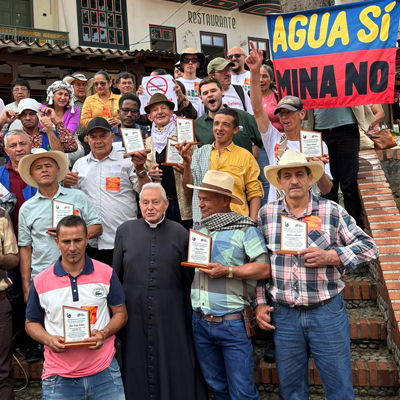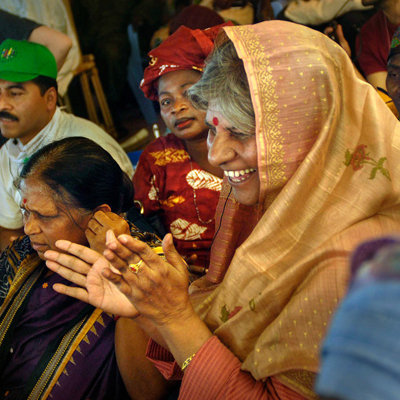An expert look
Friends of the Earth International at UN negotiations on biological diversity
 Radio Mundo Real.
Radio Mundo Real.
The 14th Conference of the Parties to the Convention on Biological Diversity (CBD) started on Saturday in Sharm El-Sheikh, Egypt, under the theme “Investing in biodiversity for people and planet”. The event will take place through November 29th.
Environmental activist Isaac Rojas, Friends of the Earth International´s Forests and Biodiversity program coordinator, who is present at the COP, warned that the planet is experiencing a “catastrophic biodiversity loss crisis” which “just like climate change, is promoted by the (capitalist) development model”.
The Costa Rican activist, with extensive experience in Friends of the Earth International, who has been following UN negotiations on biological diversity for years, analyzed some of the key issues to be dealt with at the COP in an interview with Real World Radio.
As Rojas has been following closely the advance of the two main CBD bodies: the Subsidiary Body on Scientific, Technical and Technological Advice (SBSTTA) and the Subsidiary Body for Implementation (SBI), we were interested in having the expert view of Rojas about this COP in Egypt in order to examine the negotiations in detail.
The negotiations are taking place on the year of the 25th anniversary of the CBD, so we wanted to know how he assessed these past 25 years: “The 25th anniversary of the Convention on Biological Diversity cannot be positive, because there is a serious biodiversity loss crisis, which has not been stopped, let alone reversed”, he said.
The environmental activist then recognized and highlighted some of the advances at the CBD, with a critical, but constructive look. “The Convention has advanced on some issues that are fundamental, such as the recognition of indigenous people and local communities as key actors in biodiversity conservation, preservation and management”. And he added that this is a Convention that has opened up the space to different voices, many times voices dissenting with the UN work process.
Not all UN negotiations are always that open to civil society organizations. The UN climate talks, for instance, have been denounced several times by social movements and organizations, among them FoEI, for being a space completely coopted by corporate power.
But despite recognizing this, Rojas warned: “Since the previous COP (Cancun, Mexico, December 2016) we´ve been witnessing a strong presence of corporate interests at the convention, with many benefits and advantages over other sectors”.
Synthetic biology is a key issue for FoEI in the negotiations. The environmental federation, present in 75 countries, has warned that genetic engineering technologies that are trying to design and redesign biological systems, or even to create new ones, could drastically change nature as is known today. FoEI has been demanding the Parties to the CBD to regulate the development of these new technologies, whose risks have not been assessed. In particular, the federation has requested a ban to gene drives, that allow to introduce genes into a specimen aiming to change or eliminate the species.
Another of the issues dealt with at the Cancun COP, according to Rojas, was biodiversity mainstreaming into other sectors, such as the forestry, fishing, agricultural, mining or tourism sectors, to name a few.
Rojas explained the logic behind this new development in international negotiations: “if biodiversity is incorporated into the other sectors and stops being an issue exclusive for environment ministries; and the agricultural, or fisheries ministries, or any other ministry, start to take the biodiversity variable into account, there will be more measures to protect it”. “And therefore, it could be said that biodiversity loss will stop at some point, because everyone will be interested in it a bit more”, he added. But the Costa Rican activist is not so optimistic. “The discussion at the CBD could be taking a direction that could result in negative impacts, such as the creation of new formulas to do this”. Formulas that do not aim at protecting biodiversity.
About this, Rojas talked about biodiversity offsetting mechanisms. He warned that the CBD negotiations, as they have been taking place, could deepen the creation of “false solutions or true traps” to “legitimize businesses that far from protecting biodiversity are turning into a commodity, which could accelerate its loss”.
He then made reference to the Reducing Emissions from Deforestation and Forest Degradation mechanism (REDD): “REDD is a false solution that erodes, weakens and even violates the collective rights of the people and which does not offer protection”.
The representative of FoEI believes that the real solutions to biodiversity loss, where deforestation is an extremely serious issue, are related to agroecology, community forest and biodiversity management, and the strengthening of the rights of indigenous people and local communities.
“Sadly, real solutions are not strengthened at national level as they should. In fact, in many countries they are weakened, eroded and not taken seriously”, said Rojas. “This happens despite the increasing scientific evidence that tells us that protected forests, managed by indigenous people and other local communities are richer in biodiversity than those protected under national parks systems without people”. “And this is sad because the solution is already here. We don´t have to come up with new economies or mechanisms that act as beads and trinkets”, he said, with reference to CBD´s green economy proposal.
“The solution has to do with real system change, where the people, communities, have their fate in their hands once again and are able to decide at local level what they´ll do and what they won´t do in certain territories, and it also has to do with limiting corporate power and holding it accountable for its crimes against humanity”, concluded Rojas.






